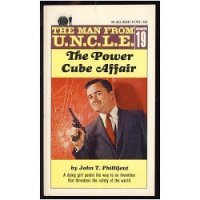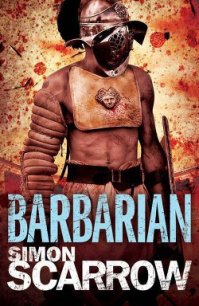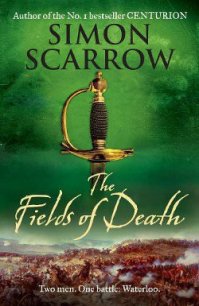Power of the Sword - Smith Wilbur (читать книги онлайн регистрации .TXT) 📗
Hendrick watched him doing it, manipulating the men around him, subjecting them to the force of his will and personality, and he was filled with admiration and pride for his younger brother, giving up his own last reservations and willingly according to him his full loyalty and love and obedience.
By association with Moses, Hendrick himself was accorded the respect and veneration of the other men in the coach. He was Moses captain and henchman and they recognized him as such, and quite slowly it dawned upon Hendrick that in a few short days Moses Gama had forged himself an impi, a band of warriors on whom he could rely implicitly, and that he had done it with almost no apparent effort.
Sitting in the crowded coach that was already stinking like an animal cage with the rancid sweat of a hundred hot bodies and with the stench from the latrine cubicle, and mesmerized by the Messianic eyes and words of his own brother, Hendrick thought back to the other great black rulers who had emerged from the mists of African history, to lead first a tiny band, then a tribe and finally a vast horde of warriors across the continent, ravaging and plundering and laying waste.
He thought of Mantatisi and Chaka and Mzilikazi, of Shangaan and Angoni, and with a flash of clairvoyance he saw them at their beginnings, sitting like this at some remote camp-fire in the wilderness, surrounded by a small group of men, weaving the spell over them, capturing their imagination and spirit with a silken noose of words and ideas, inflaming them with dreams.
I stand at the beginning of an enterprise which I do not yet understand, he thought. All I have done up until this time was only my initiation, all the fighting and killing and striving was but a training. Now I am ready for the endeavour, whatever it may be, and Moses Gama will lead me to it. I do not need to know what it is. It is sufficient only that I follow where it leads. And he was listening avidly as Moses spoke names that he had never heard and expounded ideas that were new and strangely exciting.
Tenin, said Moses, not a man, but a god come down to earth. And they thrilled to the tale of a land to the north where the tribes had united under this man-god Lenin, had smitten down a king and in doing so had become part of the godhead themselves.
They were enchanted and aroused as he told them of a war such as the earth had never seen before, and their atavistic battlelust scalded their veins and pumped up their hearts, hard and hot as the head of the fighting axe when it comes red and glowing from the ironsmith's forge. The revolution Moses called this war, and as he explained it to them, they saw that they could be part of this glorious battle, they too could be slayers of kings and become part of the godhead.
The door at the head of the coach crashed back on its slide and the white overseer stepped through and stood with his hands on his hips, grinning mirthlessly at them, and they lowered their heads and stared at the floor, hooding and screening their eyes. But those sitting close to Moses, the chosen ones, the elite, they began to understand then where the battle would be fought and who were the kings that would be slain.
The white overseer sensed the charged atmosphere in the coach. It was thick as the odour of unwashed black bodies and the stink of the latrine in the corner of the coach; it was as electric as the air at noon in the suicide days of November just before the great rains break, and he searched quickly for Hendrick sitting in the centre of the coach.
One rotten potato, he thought bitterly, and the whole sackful is spoiled. He touched the billy club in his belt. He had found out the difficult way that the lash of the sjambok was too long to wield effectively in the confines of the coaches. The billy was a stopper, fourteen inches of hard wood, the end drilled and filled with lead shot. He could break bone with it, crush in a skull to kill a man instantly if he needed to, or with a delicate alteration of the weight of the blow merely stun him. He was an artist with the billy club, as he was with the sjambok, but each had its place and time. It was the billy's time now, and he moved slowly down the coach, pretending to ignore Hendrick, examining the faces of each of the other men as he passed, seeing the new rebelliousness in their sullen faces and becoming more angry with the man who had made his task more difficult.
I should have gone after him at the beginning, he told himself bitterly. I've almost left it too late. Me, who loves the quiet life and the easy way. Well, we'll have to make the best of it now. He glanced casually at Hendrick as he passed, and then from the corner of his eye saw the big Ovambo relax slightly as he went on down the aisle between the seats.
You are expecting it, my boy. You know it has to happen, and I'm not going to disappoint you. At the far door of the coach he paused, as if he had an afterthought, and he came back down the aisle slowly, grinning to himself. Now he stopped in front of Hendrick again, and sucked noisily at the cavity in his tooth.
Look at me, kaffir, he invited pleasantly and Hendrick lifted his chin and stared at him.
Which is your mpahle? he asked. Which is your luggage? and Hendrick was taken off-guard. He was acutely conscious of the treasure of diamonds in the rack above his head and now he glanced up at the leather sack instinctively.
Good. The white overseer lifted the sack off the rack and dropped it onto the floor in front of Hendrick.
Open it, he ordered, still grinning, one hand on his hip the other on the handle of the billy.
Come on. The grin became cold and wolfish as Hendrick sat without moving. Open it, kaffir. Let's see what you are hiding!
It had never failed him yet. Even the most docile of men would react to protect their belongings, no matter how worthless and insignificant.
Slowly Hendrick leaned forward and untied the neck of the leather sack. Then he straightened again and sat passively.
The white overseer stooped, seized the bottom of the sack and straightened up again, never taking his eyes off Hendrick's face. He shook the sack vigorously, spilling the contents onto the floor.
The blanket roll fell out first, and using the toe of his boot the overseer spread it open. There was a sheepskin gilet and other spare clothing in the roll, and a nine-inch knife in a leather sheath.
Dangerous weapon, said the overseer. You know that no dangerous weapons are allowed in the coaches. He picked up the knife, pressed the blade into the niche of the window and snapped it off; then he tossed the two separate pieces out between the bars of the window behind Hendrick's head.
Hendrick did not move, although the overseer waited for almost a minute, staring at him provocatively. The only sound was the clackety-clack of the bogey over the cross ties of the steel lines and the faint buffing of the locomotive at the head of the train. None of the other black passengers was watching the small drama develop; they were all staring straight ahead of them, faces closed, eyes unseeing.
What is this rubbish? the overseer asked and touched one of the hard flat millet cakes with his toe, and though Hendrick did not move a muscle, the white man saw the first spark in those black smoky eyes.
Yes, he thought gleefully. That's it. Now he will move. And he picked up a loaf and sniffed it thoughtfully.
Kaffir bread, he murmured. Not allowed. Company rules no food allowed on the train. And he turned the flat loaf on edge so that it would pass between the bars and he tossed it through the open window. The loaf bounced on the embankment below the rocketing steel wheels and then shattered into fragments, and the overseer chuckled and stooped for the next loaf.
It snapped in Hendrick's head. He had held it in check too long and the loss of the diamonds drove him berserk. He went for the white man, launching himself out of the seat, but the overseer was ready for him. He straightened his right arm and drove the point of the billy club into Hendrick's throat. Then, as Hendrick fell back choking and clutching at his throat, he whipped the club into the front of his skull, judging it finely, not a killing blow, and Hendrick's hand dropped from his damaged throat as he toppled forward.




